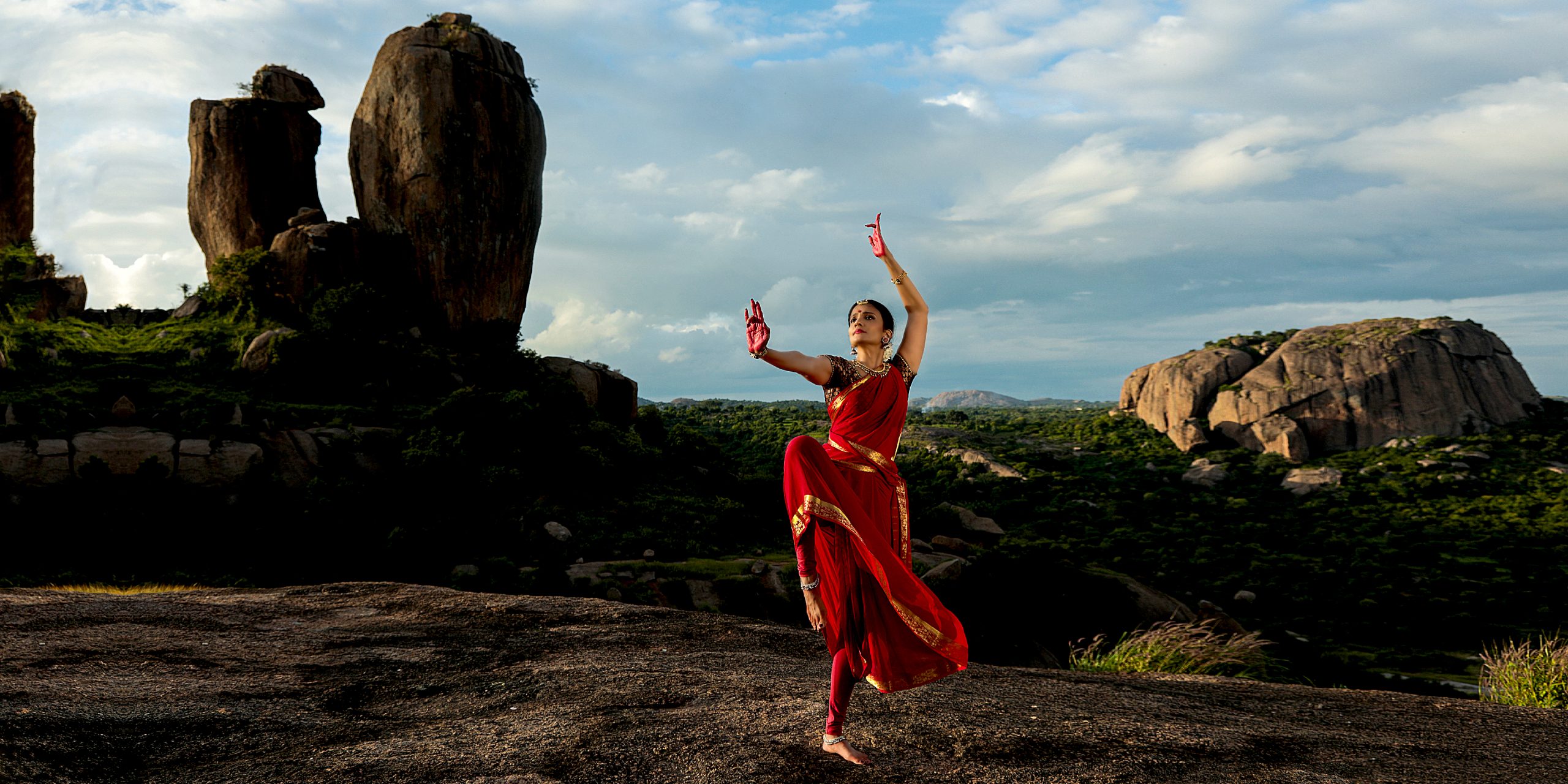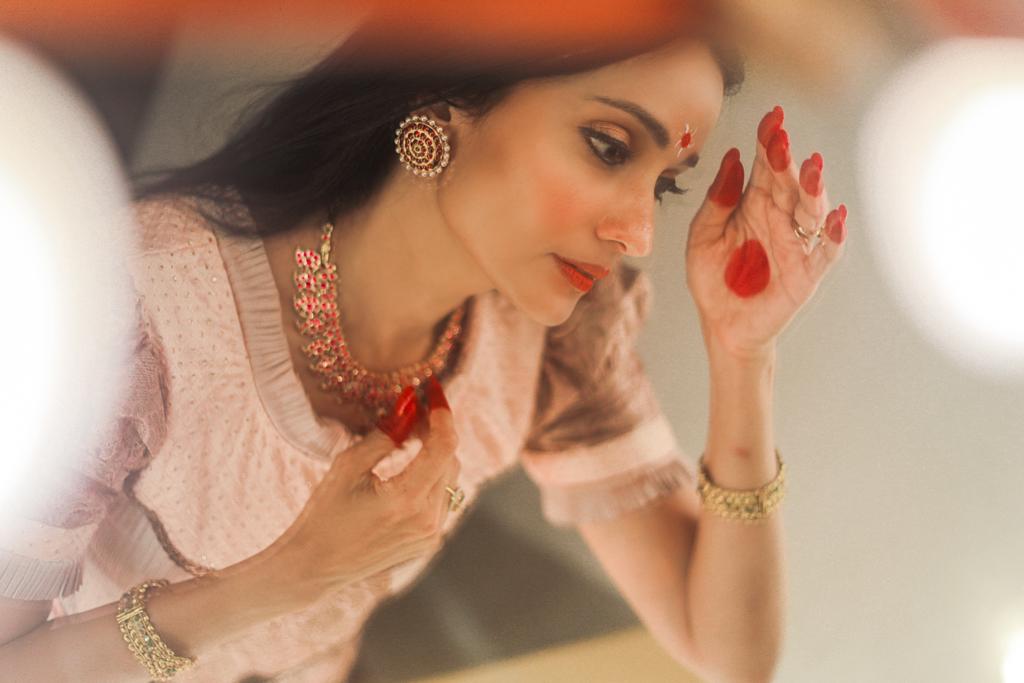Ozymandias
“My name is Ozymandias, King of Kings:
Look on my works, ye mighty, and despair”
It is strange that I validated my convictions thousands of miles away from where I formed them. India – the country with centuries of artistic history behind it – has given the world many classical forms of dancing. The raison d’être behind many of these dance forms has been long forgotten. The dance forms have been morphed to represent Hinduism itself; as though these dances are as much a Rosetta Stone for Hinduism as are the Upanishads and Bhagawad Gita.
Cut the scene to the lovely Kumble Auditorium in Brooklyn, New York. Some of the most accomplished artists of today were performing on stage, their traditional repertoires. And outside the theater, in the foyer stood close to three dozen audience who had stepped out to take a breather from an over dose of traditional dancing. Overdose? Within the first hour of the program?
Something that has held our interest over several centuries now has a problem, keeping audience interest for sixty minutes! One Indian member of the audience was explaining a part of Ramayana to a Caucasian as they both stood in the foyer. “This is the story of a King whose wife was kidnapped by a ten- headed beast and taken to another country. The King enlisted an army of apes, attacked the other country, and returned with his wife back home”. And then he sheepishly added, “You might have seen this played in Bali where you went on your last vacation”. The Caucasian was amused to say the least at this seemingly fantastic story. Have we, traditionalists reduced these stories to some sort of Star Trek/Star Wars fantasy? This comes thanks to the very superficial efforts we make at portraying extremely deep philosophies that go behind our mythology. We portray the stories and expect the modern day audience to connect to the philosophy. They don’t. The dance was performed at Kumble Auditorium by the best artist in that genre. There was no way it could have been delivered better. The content did no justice to the great philosophies behind it. And this is how the traditionalists are massacring their own heritage. Retelling a story, be it Ramayana, Shiva Purana, or Bhagawadam does no good. However, the moralities, philosophies, and values that the original text portrayed are immortal. Classical tradition for the most part has failed to present the core and instead presented the surface as immortality. And when this is pedalled as Hinduism, those foreign to the religion find it absurd and alien.
The core of these texts, being immortal, may be presented in just about any story that is written to showcase that facet. It does not have to be from mythology at all. For instance, a traditional performance on the concept of Ardhanari, portrays the male as being one wrapped up in snakes and the female wrapped up in pearls! Instead, if it became conceptual as yin and yang, perhaps the essence of Ardhanari becomes global, regardless of religious or spiritual affinity. A traditionalist will say the male wrapped in snakes and female wrapped in pearls should invoke in an audience that feeling of yin and yang. Sorry, it doesn’t. If you want that feeling invoked, then a compelling story that shows this delicate balance is far more likely to work, than a superficial representation of the physical garb and attributes of the male and female protagonists.
An art form lives on through the minds of the audience. The audience is subject to multitudes of stimuli. Cinema has changed, music has changed. Our very lives and times have changed. The Indian endeavours in these arenas are today globally accepted as hallmarks of true artistic excellence. What is immortal needs to be conveyed through medium that is capable of adapting to today’s world. The one thing that hasn’t changed seems to be the resolute determination of traditionalists, not to change their content. I personally have completely lost faith and interest in using an age old story out of mythology to try and deliver simple and universal truths. And to that extent I do not wish to be associated with performing Bharathanatyam in its traditional form. I have found my space in retelling stories from our lives through Bharathanatyam. They have truth, they are honest, and still portray the same universal principles that haven’t changed in centuries and never will. It is time “purists” understood what the real immutable is. And that can never change, no matter how you deliver it.
Look on my works, ye mighty, and despair”
It is strange that I validated my convictions thousands of miles away from where I formed them. India – the country with centuries of artistic history behind it – has given the world many classical forms of dancing. The raison d’être behind many of these dance forms has been long forgotten. The dance forms have been morphed to represent Hinduism itself; as though these dances are as much a Rosetta Stone for Hinduism as are the Upanishads and Bhagawad Gita.
Cut the scene to the lovely Kumble Auditorium in Brooklyn, New York. Some of the most accomplished artists of today were performing on stage, their traditional repertoires. And outside the theater, in the foyer stood close to three dozen audience who had stepped out to take a breather from an over dose of traditional dancing. Overdose? Within the first hour of the program?
Something that has held our interest over several centuries now has a problem, keeping audience interest for sixty minutes! One Indian member of the audience was explaining a part of Ramayana to a Caucasian as they both stood in the foyer. “This is the story of a King whose wife was kidnapped by a ten- headed beast and taken to another country. The King enlisted an army of apes, attacked the other country, and returned with his wife back home”. And then he sheepishly added, “You might have seen this played in Bali where you went on your last vacation”. The Caucasian was amused to say the least at this seemingly fantastic story. Have we, traditionalists reduced these stories to some sort of Star Trek/Star Wars fantasy? This comes thanks to the very superficial efforts we make at portraying extremely deep philosophies that go behind our mythology. We portray the stories and expect the modern day audience to connect to the philosophy. They don’t. The dance was performed at Kumble Auditorium by the best artist in that genre. There was no way it could have been delivered better. The content did no justice to the great philosophies behind it. And this is how the traditionalists are massacring their own heritage. Retelling a story, be it Ramayana, Shiva Purana, or Bhagawadam does no good. However, the moralities, philosophies, and values that the original text portrayed are immortal. Classical tradition for the most part has failed to present the core and instead presented the surface as immortality. And when this is pedalled as Hinduism, those foreign to the religion find it absurd and alien.
The core of these texts, being immortal, may be presented in just about any story that is written to showcase that facet. It does not have to be from mythology at all. For instance, a traditional performance on the concept of Ardhanari, portrays the male as being one wrapped up in snakes and the female wrapped up in pearls! Instead, if it became conceptual as yin and yang, perhaps the essence of Ardhanari becomes global, regardless of religious or spiritual affinity. A traditionalist will say the male wrapped in snakes and female wrapped in pearls should invoke in an audience that feeling of yin and yang. Sorry, it doesn’t. If you want that feeling invoked, then a compelling story that shows this delicate balance is far more likely to work, than a superficial representation of the physical garb and attributes of the male and female protagonists.
An art form lives on through the minds of the audience. The audience is subject to multitudes of stimuli. Cinema has changed, music has changed. Our very lives and times have changed. The Indian endeavours in these arenas are today globally accepted as hallmarks of true artistic excellence. What is immortal needs to be conveyed through medium that is capable of adapting to today’s world. The one thing that hasn’t changed seems to be the resolute determination of traditionalists, not to change their content. I personally have completely lost faith and interest in using an age old story out of mythology to try and deliver simple and universal truths. And to that extent I do not wish to be associated with performing Bharathanatyam in its traditional form. I have found my space in retelling stories from our lives through Bharathanatyam. They have truth, they are honest, and still portray the same universal principles that haven’t changed in centuries and never will. It is time “purists” understood what the real immutable is. And that can never change, no matter how you deliver it.




Unknown
Reminds me of the story of Helen of Troy